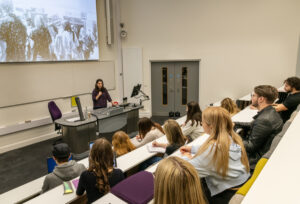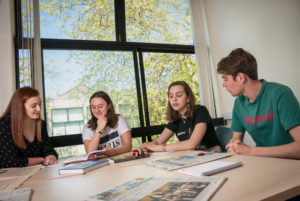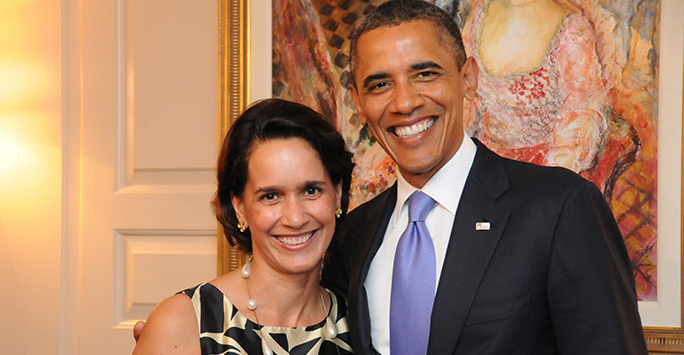Clearing 2025
Clearing places have been filled on this course for 2025 entry.
Philosophy and Politics
UCAS code LV25
- Study mode
- Full-time
- Duration
- 3 years
- Start date and application deadlines
-
- Start date
Clearing places have been filled on this course for 2025 entry.
UCAS code LV25
This programme offers a comprehensive, diverse, inclusive, and intellectually stimulating education in philosophy and politics, two subjects that are enhanced when studied in tandem.
A detailed understanding of Philosophy enhances the study and practice of Politics. Philosophy is open-ended, questioning, and creative, and also involves the critical reading, analysis, and understanding of great philosophical texts. Politics shares these features, but also adds more elements of factual knowledge, for instance about the workings of institutions.
Year one concentrates on the development of core philosophical and political knowledge and skills through required modules, while year two consolidates this background, and allows some level of choice. The final year allows you to opt to take modules from a wide range of areas, and to become acquainted with recently developed or emerging areas of research in the disciplines.
You will become confident in working with abstract concepts and analysing real political practices, and develop skills in analytical, critical, and creative thinking. Your presentational and writing abilities will be developed to a level consistent with progression to postgraduate study and/or graduate-level employment. You will develop a number of core transferable skills, such as the ability to reconstruct and critically assess arguments, the ability to build a case for a conclusion, and time-management skills.
This programme is available with a Year in Industry. Year three is spent on a paid placement within an organisation in industry, broadly defined. You will be supported by the School of the Arts and the Department throughout, and your reflective written account of the experience will contribute towards your final degree result. If you wish to study this programme with a Year in Industry, please put the option code ‘YI’ in the ‘Further Choices’ section of your UCAS application form.

We’re proud to announce we’ve been awarded a Gold rating for educational excellence.
Discover what you'll learn, what you'll study, and how you'll be taught and assessed.
You will take entirely compulsory modules in your first year, which will provide the building blocks for the rest of your degree.
You will study 120 credits in each year of study. Half of your modules will be taken in Philosophy, and the other half in Politics.
Programme details and modules listed are illustrative only and subject to change.
In each semester, students must take 30 credits of Politics and 30 credits of Philosophy.
Programme details and modules listed are illustrative only and subject to change.
Your final year is made up entirely of optional modules, giving you some flexibility in the subjects you pursue.
Programme details and modules listed are illustrative only and subject to change.
Philosophy: In studying Philosophy, you will learn how to defend your views with reasoned arguments, and to assess the arguments of others. Argumentative skills are learned through attending lectures and reading philosophical texts, developed by group seminar discussions, and formally assessed through essays and exams. You will complete modules to the value of 120 credits per year, from a wide range of options available. Most modules employ a blend of lectures, seminars, and online support materials. You will learn by reading and studying outside class time, by attending and participating in classes, by doing coursework and, for dissertations, via one-to-one meetings with a supervisor. There is also scope, both formally in the placement module and informally, for you to develop practical skills by volunteering.
Politics: Research-connected teaching is initiated in the first year with introductions to quantitative, qualitative, theoretical, and critical methodologies, which are then embedded in second- and final-year modules so that students can evaluate and apply the methodologies to construct their own analyses. Though our lectures are interactive, our seminars, workshops, computer lab sessions, dissertations, and placements form the core of our active-learning approach.
Philosophy: Philosophy employs a mixture of modes of assessment: exams and coursework in many different varieties including essays, oral presentations, dissertations, exercises, and supported independent work (eg in the placement module).
Politics: We use a rich variety of assessment methods to develop students’ various skills. Essays, exams, and presentations enable students to practise core academic writing and speaking skills, while innovative assessments such as blog posts, reflective logs, group projects, podcasts, radio broadcasts, and speeches expand our authentic assessment, enabling students to deploy transferable skills in various formats. Digital fluency is also developed in different ways, including sourcing relevant material, using online learning platforms and tools, producing audio and visual materials, word processing, and statistical analysis.
We have a distinctive approach to education, the Liverpool Curriculum Framework, which focuses on research-connected teaching, active learning, and authentic assessment to ensure our students graduate as digitally fluent and confident global citizens.
The Liverpool Curriculum framework sets out our distinctive approach to education. Our teaching staff support our students to develop academic knowledge, skills, and understanding alongside our graduate attributes:
Our curriculum is characterised by the three Liverpool Hallmarks:
All this is underpinned by our core value of inclusivity and commitment to providing a curriculum that is accessible to all students.
The qualifications and exam results you'll need to apply for this course.
| Qualification | Details |
|---|---|
| A levels |
BCC |
| BTEC Level 3 national extended diploma |
DMM. |
| BTEC combinations |
BTEC National Diploma MM plus B at A level; BTEC National Extended Certificate M plus BC at A level. |
| Welsh Baccalaureate Advanced |
C in the Welsh Baccalaureate, plus BC at A level |
| Access |
Pass relevant Access to HE Diploma with 45 Level 3 credits with 27 at Distinction and 18 at Merit |
Studying with us means you can tailor your degree to suit you. Here's what is available on this course.
University of Liverpool students can choose from an exciting range of study placements at partner universities worldwide. Choose to spend a year at XJTLU in China or a year or semester at an institution of your choice.
Immerse yourself in Chinese culture on an optional additional year at Xi'an Jiaotong Liverpool University in stunning Suzhou.
Broaden your world by spending an additional year of study at a partner university abroad following your second year of study.
Take a semester of your second year of study at one of our worldwide partner institutions.
Spend a summer abroad on a study placement or research project at one of our worldwide partner institutions.
Year in industry placements give you an in-depth workplace experience where you can develop your skills and apply your learning.
You don't need to decide now - you can choose to add a year in industry after you've begun your degree.
Learn more about year in industry
To spend a year in industry, you'll need to secure a placement with an organisation. If you're unable to find a placement, you'll continue with the standard version of the course without a year in industry.
Every student at The University of Liverpool can study a language as part of, or alongside their degree. You can choose:
As a student of both Philosophy and Politics, you will be taught in a variety of buildings across campus. Both Departments are based in Abercromby Square, and will provide you with support and guidance from your very first day.






From arrival to alumni, we’re with you all the way:

Want to find out more about student life?
Chat with our student ambassadors and ask any questions you have.
Graduating with a degree in philosophy will empower you to delve into the profound questions that shape human existence but also position you as a valuable asset in today’s competitive job market.
The School has its own placements and employability officer, and you will have the opportunity to undertake a work placement or a year in industry as part of your programme.
Graduates in Philosophy obtain work in fields such as:
3 in 4 philosophy students find their main activity after graduation meaningful.
(Graduate Outcomes Survey, 2018-19.)
Hear what graduates say about their career progression and life after university.

US District Judge Wendy Beetlestone described her time at University of Liverpool as a “great start” that delivered the “thought discipline” that continues to influence her professional life.

Emma is a Production Management Assistant on the One Show.
Your tuition fees, funding your studies, and other costs to consider.
Full-time place, per year - £9,535
Year in industry fee - £1,905
Year abroad fee - £1,430 (applies to year in China)
Full-time place, per year - £24,100
Year in industry fee - £1,905
Year abroad fee - £12,050 (applies to year in China)
The tuition fees shown are correct for 2025/26 entry. Please note that the year abroad fee also applies to the year in China.
Tuition fees cover the cost of your teaching and assessment, operating facilities such as libraries, IT equipment, and access to academic and personal support. Learn more about paying for your studies.
We understand that budgeting for your time at university is important, and we want to make sure you understand any course-related costs that are not covered by your tuition fee. This could include buying a laptop, books, or stationery.
Find out more about the additional study costs that may apply to this course.
We offer a range of scholarships and bursaries that could help pay your tuition and living expenses.
If you’re a UK student joining an undergraduate degree and have a household income below £35,000, you could be eligible for a Liverpool Bursary worth up to £2,000 for each year of undergraduate study.
Apply for an Asylum Seekers Scholarship and you could have your tuition fees paid in full and receive help with study costs. You’ll need to have applied for asylum in the UK, or be the dependant of an asylum seeker, and be joining an eligible undergraduate degree.
If you’ve spent 13 or more weeks in Local Authority care since age 14, you could be eligible for a bursary of £3,000 per year of study. You’ll need to be a UK student joining an eligible undergraduate degree and be aged 28 or above on 1 September in the year you start.
Are you a UK student with a Black African or Caribbean heritage and a household income of £25,000 or less? You could be eligible to apply for a Cowrie Foundation Scholarship worth up to £8,000 for each year of undergraduate study.
If you’re a UK student identified as estranged by Student Finance England (or the equivalent UK funding body), you could be eligible for a bursary of £1,000 for each year of undergraduate study.
Do you live in the Liverpool City Region with a household income of £25,000 or less? Did neither of your parents attend University? You could be eligible to apply for a Nolan Scholarship worth £5,000 per year for three years of undergraduate study.
Are you a UK student with a household income of £25,000 or less? If you’ve participated in an eligible outreach programme, you could be eligible to apply for a Rigby Enterprise Award worth £5,000 per year for three years of your undergraduate degree.
Are you a UK student with a household income of £25,000 or less? Did neither of your parents attend University? You could be eligible to apply for a ROLABOTIC Scholarship worth £4,500 for each year of your undergraduate degree.
Apply to receive tailored training support to enhance your sporting performance. Our athlete support package includes a range of benefits, from bespoke strength and conditioning training to physiotherapy sessions and one-to-one nutritional advice.
If you’re a young adult and a registered carer in the UK, you might be eligible for a £1,000 bursary for each year of study. You’ll need to be aged 18-25 on 1 September in the year you start your undergraduate degree.
Have a question about this course or studying with us? Our dedicated enquiries team can help.
Last updated 16 August 2025 / / Programme terms and conditions